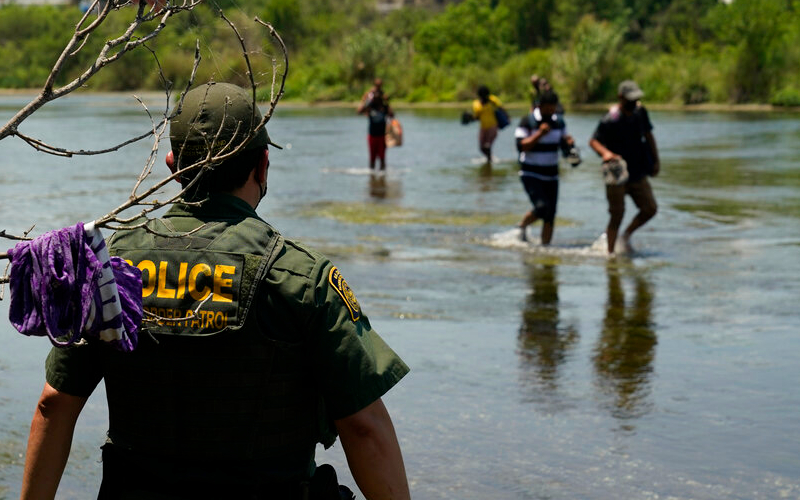Navy Adm. John Aquilino, the U.S. Indo-Pacific commander, previously indicated that the Chinese regime is pursuing what he described as "the largest military build-up in history" since World War II. The commander's remarks followed China's open disdain to the Australia, U.K., and U.S. (AUKUS) defense pact which announced in September 2021.
"If you'd like to talk about nuclear weapons and the concern for a nuclear arms race, all you have to do is look into the PRC [People's Republic of China]," the admiral said last week at a joint press conference with Indonesian military chief Gen. Andika Perkas.
Retired U.S. Marine Colonel Grant Newsham was the first Marine Liaison Officer to the Japan Ground Self-Defense Force. He tells American Family News he agrees with Aquilino.

"[The admiral] rightly described the PRC's conventional military buildup as the biggest, fastest military buildup of any nation since World War II, if not in history," he warns. "China's expanding nuclear force is really just adding to the threat it already poses."
One specific area of concern for Newsham is that Beijing might actually use nuclear weapons, despite promises it will never use them first. The retired Marine Corps officer refuses to completely dismiss the potential for a nuclear war should America come to the aid of Taiwan against the PRC.
"[Even] if China had no nuclear weapons, its conventional force – which continues to grow in size and capability – is a useful tool for Beijing as it seeks regional domination, [which includes] driving out the Americans and putting the Japanese in their place," Newsham admits. "The threats are clear … and one can also see the difficulties the PRC poses to smaller regional nations trying to stay free and independent."
Unity seen as threat
As Newsham explains, the main objective of the AUKUS trilateral security agreement was to help Australia obtain nuclear submarines.
"But AUKUS calls for – or allows – cooperation between the three countries on a range of other defense technologies," he adds, explaining that "there is no reason other free nations, such as Japan and Canada, for example, cannot join in on certain projects and activities."
AUKUS is important, he continues, because "the most effective means for the free nations to defend themselves from Chinese aggression is aligning with each other and demonstrating military, political, economic, and diplomatic cooperation." And according to the retired military officer, the Chinese communists "absolutely hate it when its intended victims unify to defend themselves."
Reality changes minds
Newsham suggests that the media "tends to assume that China isn't serious about using nuclear weapons – for real or for intimidation." In addition, he argues that most U.S. analysts and China Hands* "absolutely dismissed the suggestion China had – or intended to have – a nuclear arsenal beyond the bare minimum, and only to respond to an American attack."
Now, he says, it's ironic that many who dismissed the Chinese military threat "are saying the PLA [People's Liberation Army] is so powerful that we have no choice but to let them do what they want with Taiwan and to otherwise accommodate the PRC."
But Newsham argues "they are wrong once again." He suggests that if the free world – led by the U.S. – "keeps its wits about it and plays to its strengths," it can keep the Chinese Communist Party at bay and "stewing in its juices while the free world lives nicely."
* "China Hands" is a term that refers to American diplomats, journalists, and soldiers known for their knowledge of China and influence on American policy before, during, and after WWII. During and after the Cold War, the term "China watcher" became popularized.







